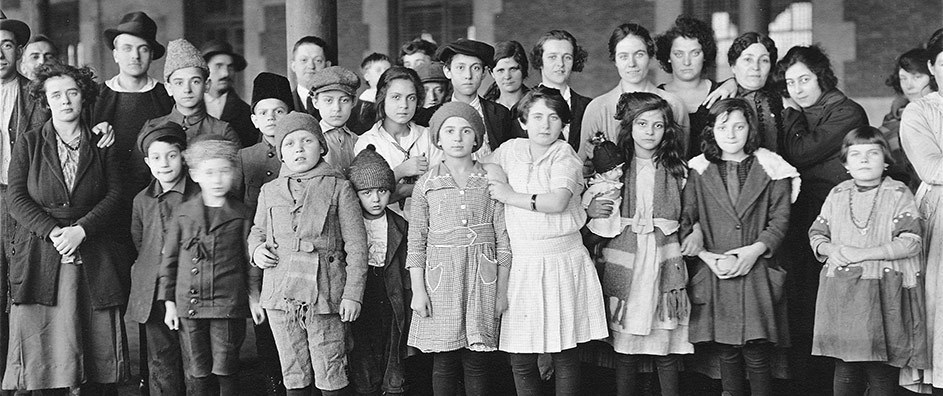In exploring the Bahá’í teachings, we confront a profound ethical imperative: the obligation to assist the most vulnerable members of society, particularly poor children, waifs, and orphans. This moral responsibility transcends mere philanthropy; it embodies a transformative shift in perspective toward the interconnectedness of humanity. Understanding this tenet invites us to reevaluate our roles as stewards of society and engenders a curiosity-driven quest to effectuate tangible change.
The Bahá’í Faith posits that every individual is endowed with innate dignity and value, irrespective of their circumstances. At the crux of these teachings lies the assertion that while poverty and orphanhood are societal constructs attributable to systemic inequities, our response must be proactive, compassionate, and informed. Thus, developing a comprehensive mindset around aiding vulnerable children is not only beneficial but essential.
Recognizing the Challenges Faced by Vulnerable Children
The first step in addressing the needs of poor children, waifs, and orphans involves a nuanced understanding of their multifaceted challenges. These children often face dire socioeconomic conditions, limited access to education, and the psychological ramifications of loss and abandonment. The absence of a supportive familial structure may exacerbate feelings of isolation and despair, engendering a cycle of disadvantage. Detailing these issues is crucial, as it underpins the rationale for urgent action.
Furthermore, it is essential to recognize that the plight of these children extends beyond mere survival. Many of them experience malnutrition, inadequate healthcare, and a lack of safe environments in which to play and develop. The convergence of these factors necessitates a concerted effort to create holistic solutions that address both immediate needs and long-term well-being.
Fostering Engagement and Activism
As advocates for the vulnerable, it is imperative to foster a culture of engagement and activism within our communities. Harnessing local resources and connecting with non-profit organizations dedicated to the welfare of children can amplify efforts on the ground. Collaboration with educational institutions can also promote awareness, instigating dialogues around the importance of child welfare and the mechanisms implemented to address it.
Through organized volunteer programs, individuals can directly contribute their time and skills, amplifying the impact of charitable endeavors. This engagement enables participants to witness the realities faced by vulnerable children firsthand. Such experiences can irrevocably alter one’s worldview, motivating sustained involvement in philanthropic activities.
Utilizing Bahá’í Principles to Foster Institutional Change
The teachings of the Bahá’í Faith advocate for the equitable distribution of resources and the elimination of prejudice in all its forms—principles that are critical to institutional reform. One of the most profound ways to effect change involves lobbying for policies that protect children and support family integrity. This includes endorsing laws that provide for child welfare and advocating for community programs designed to empower families economically, thus alleviating systemic poverty.
Being informed and prepared to engage in advocacy work can significantly influence governmental and organizational policies. This involves a commitment to persistent dialogue with decision-makers, ensuring that the voices of the marginalized are heard and amplified. By rigorously pursuing justice and equity, one reinforces the Bahá’í principle of serving humanity to foster a unified global community.
Promoting Education and Skill Development
Education emerges as a cornerstone in the fight against poverty and orphanhood. The Bahá’í teachings highlight the transformative power of knowledge and its capacity to uplift individuals and communities. Thus, initiating educational programs specifically designed for underprivileged children not only addresses their immediate needs but also paves the way for their future self-sufficiency.
Skill development programs tailored to the interests and aptitudes of young individuals can cultivate a sense of agency and empowerment. By collaborating with educators and community leaders, we can create initiatives that align with the aspirations of these children while equipping them with practical skills necessary for their integration into society. This multifaceted approach fosters hope and resilience, allowing them to envision and pursue brighter futures.
Building a Community of Compassion
A critical component in supporting vulnerable children revolves around cultivating a community rooted in compassion and understanding. The Bahá’í teachings implore us to transcend the barriers of race, class, and background, actively promoting empathy towards one another. Establishing mentorship programs, safe spaces, and community-building activities reinforces a sense of belonging and acceptance among children coping with trauma and adversity.
Furthermore, community initiatives focused on nurturing emotional intelligence are paramount. Workshops designed to cultivate resilience, mindfulness, and emotional regulation should be integrated into support programs. By providing these tools, children can navigate their personal challenges and form healthier relationships with their peers and families.
Conclusion: A Call to Action
Ultimately, the teachings of the Bahá’í Faith exemplify a universal call to action that transcends individualistic concerns. Helping poor children, waifs, and orphans requires a committed, collective effort that merges compassion with pragmatic solutions. A shift in perspective encourages society to view these vulnerable groups not simply as recipients of charity but as integral members capable of contributing to the fabric of humanity.
As followers of Bahá’í principles, the task is not only to assist but to empower. Through comprehensive and transformative engagement, we can aspire not merely to alleviate suffering but to foster a world characterized by unity, justice, and opportunity for all. The journey toward uplifting these vulnerable souls is the shared responsibility of every individual, with the potential to reshape humanity for generations to come.
